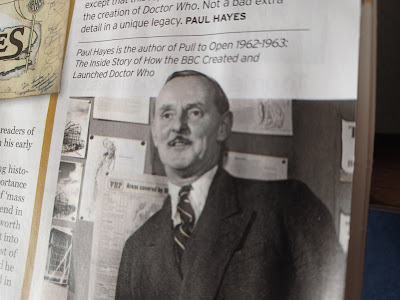Last year I wrote about the 100th anniversary of the BBC, and why I was so proud to be associated with it. Today marks the centenary of another British cultural institution, one which for most of its history until being sold off in 2011 was a part of the BBC, and indeed was its official "organ". For it is 100 years ago today since the first issue of the Radio Times listings magazine was published - and to my surprise, but no little pleasure, I have found myself also becoming associated with the magazine for its centenary special issue.
We were always a Radio Times household when I was growing up. I am just about old enough to remember the pre-deregulation days when we would get both the Radio Times and the TV Times to have both sets of listings. But, like many households in the UK, once they were both publishing each other's we got both for precisely one more week before deciding on which side our bread was buttered and continuing with the Radio Times alone.
I can remember it feeling like one of the signs of being an independent grown-up when, after having moved away to go to university, I had to start buying my own copy if I wanted one. I think the magazine is a great cultural time capsule, too. For TV and radio history, obviously, but also for the more wider popular culture of the time, too. Just the other day I was browsing some covers of issues from 1989, and I think you'd find it hard to have a better barometer of just who and what were in the public consciousness in any given era of Britain in the second half of the 20th century than the covers from across those decades.
I've been very proud to have had a couple of my documentaries selected as "Today's Choices" in the radio pages down the years, and even to have once managed to get them to play along with printing a clue within the magazine for Treasure Quest. But I was even more proud earlier this month to rather unexpectedly find myself asked to write a small piece for them - and not for any old issue, either, but for the centenary special.
It's a short feature about Eric Maschwitz, one of the early editors of the Radio Times and a fascinating character - a lyricist who wrote the words to A Nightingale Sang in Berkeley Square; a screenwriter who co-wrote the screenplay for Goodbye, Mr Chips; a radio executive who created In Town Tonight; and even a spy involved with counter-intelligence operations in neutral New York in the early days of the Second World War.
He also, in one of his latter roles as a BBC television executive, had a part in the chain of events which led to the creation of Doctor Who. Which is why I wrote about him in Pull to Open, and why I in turn ended up being asked to write this short piece.
So, happy birthday Radio Times. And thank you for letting me become a small part of that history!








